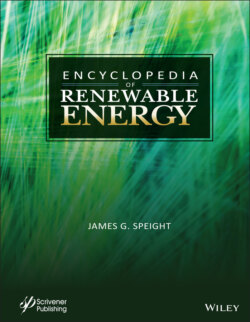Читать книгу Encyclopedia of Renewable Energy - James Speight G., James G. Speight - Страница 40
Additives – Fuels
ОглавлениеThe term fuel additives applies to chemicals that are intended to improve the capabilities of a gasoline-fuel or diesel-fueled engine while it is running or in use. Fuel stabilizers are designed to keep the fuel in a functional condition when being stored for a long period of time without use. Chemicals may also be added to liquid fuels such as heavy oil and crude shale oil to improve the transportation properties. Pour point depressants have been successful in some instances but are disadvantageous because they only change the physical characteristics of the oil and not its chemical properties.
In modern fuels, a combination of several chemical additives is used in order for the fuel to meet the desired performance level. For example, the use of antiknock additives permits greater efficiency and higher power output because of the higher compression ratios they produce. In certain diesel engines, the higher cetane fuels have shorter ignition delay periods than lower cetane fuels. Several different additives have been tried to increase the cetane number of diesel fuel and lubricity improvers as well as friction modifiers both work through the action of film formation on the metal surfaces. However, biodiesel is, to a point, capable of self-lubricating, thereby reducing fraction in diesel engines.
See also: Fuels.
